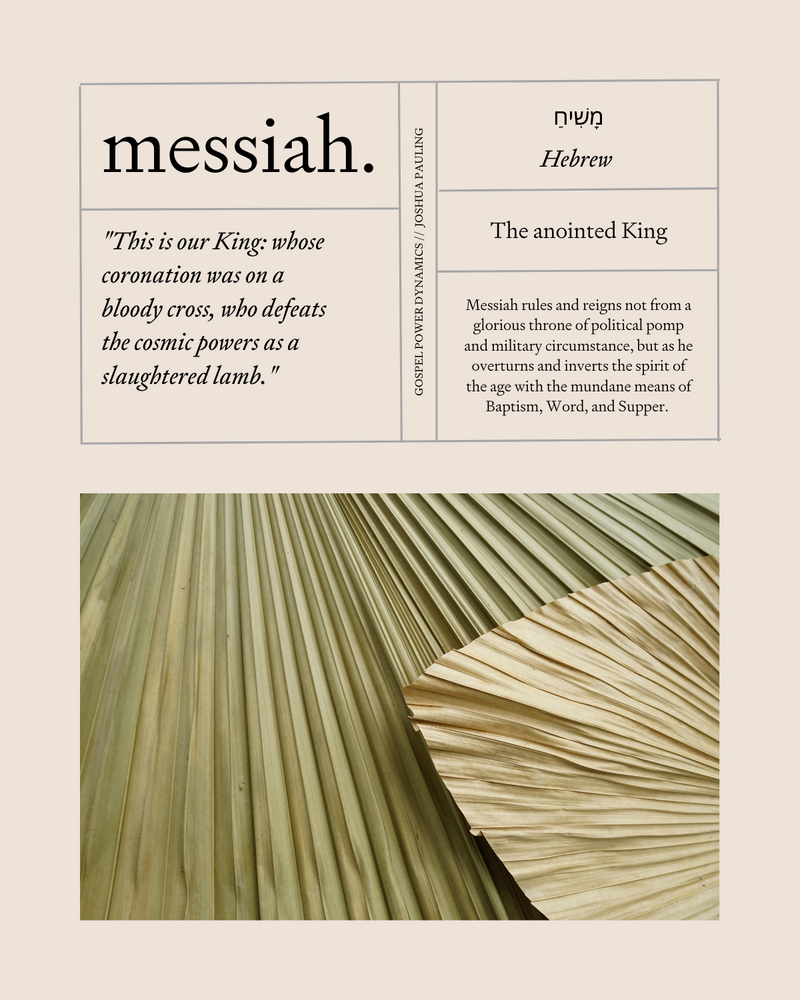“Power tends to corrupt and absolute power corrupts absolutely.” So wrote English historian and politician Lord Acton in an 1887 letter to Archbishop Mandell Creighton. It was a few years earlier in 1883 when, across the Atlantic, prominent American writer and orator Robert Ingersoll encapsulated a similar sentiment: “nothing discloses real character like the use of power. It is easy for the weak to be gentle. Most people can bear adversity. But if you wish to know what a man really is, give him power. This is the supreme test.” And of course, it was Friedrich Nietzsche who in the nineteenth century’s twilight penned the stinging aphorism that has echoed ever since: “This world is the will to power—and nothing besides! And you yourselves are also this will to power—and nothing besides!”
Questions about power and corruption are perennial but have taken on growing significance in the last century thanks to two world wars, genocidal horrors, authoritarian regimes, and our feeble attempts at making sense of it all. From relationships to language, from politics to religion, from race to gender, power dynamics have become the default explanation for everything. As Bruce Bawer explains, postmodernists like Michel Foucault “questioned the very notion of human nature and replaced it with the assumption…that our thoughts about human behavior, our statements about the nature of man, and in fact all ideas of whatever kind are nothing more or less than assertions of power” (11).
The narrative of power has become the all-encompassing story in today’s world. And there’s a lot of truth to it. So much of the world is consumed with power, greed, and abuse of authority: political parties seeking power over principle; corporations accumulating power for financial advantage; institutions leveraging power to cover up scandal and malpractice. Churches and ministry leaders are not immune from such abuses. In story after story, headline after headline—and when we’re honest with our own twisted hearts—we see just how right Lord Acton was. Power corrupts.
But there is an alternative to our twisted, selfish, hopeless power dynamics: those set up and orchestrated by God himself. And his power dynamics turn everything on its head. Gene Veith captures this in The Spirituality of the Cross.
People today have become cynical, and understandably so. Postmodern thinkers go so far as to say that all religions, ideologies, and cultural institutions are nothing more than ‘constructions’ designed to impose power over other people. These metanarratives—stories that purport to account for all of reality—are really all about power. But in response, an interesting apologetic for Christianity has arisen. There is one metanarrative that is not about power. It is about the abnegation of power, centering on a powerful God who emptied Himself to become a poverty-stricken, homeless baby in a manger and who was killed by torture as a criminal. And yet, strangely, this death redeems us, as we, too, give up our power and accept His free gift. This one metanarrative is not about power and so is not a human construction. The other metanarratives are constructions by corrupt human beings asserting their selfish will to power. But this one is so different, it must be true. (11–12)
Even in this jaded age there remains a jolt of hope, a flash of something so unexpected and unlikely: the powerless babe in a manger, the stripped Christ on a cross, the victorious yet slaughtered lamb—the God who wins by losing. Paul the Apostle and John the Revelator provide especially vivid imagery of the power dynamics of the Kingdom—the subversive, upside-down, paradoxical Kingdom of Christ the crucified.
St. Paul’s Powerful-Foolish Cross
In his letter to the Corinthians, St. Paul writes that “the foolishness of God is wiser than men, and the weakness of God is stronger than men,” because “God chose what is weak in the world to shame the strong; God chose what is low and despised in the world, even things that are not, to bring to nothing things that are, so that no human being might boast in the presence of God.” (1 Cor. 1:25–29). Paul frequently calls this foolishness “the power of God” (in Greek dynamis theou). Is it too much of a stretch, taking our hints from the Greek dynamis, to say that the cross reveals God’s power dynamics?
Jonathan Linebaugh notes in The Word of the Cross that, though “the cross is the site of weakness and shame, of degradation and death,” it is simultaneously where “God acts in and at the nothingness of ‘Christ crucified’ to contradict and overcome the conditions of the possible” (xv). The impossible folly of the cross is “a wisdom beyond the world, a power beyond the possible, and a miracle whose name is Jesus Christ” (xvi). Paul drives this point home as he concludes his opening argument in 1 Corinthians:
And I, when I came to you, brothers, did not come proclaiming to you the testimony of God with lofty speech or wisdom. For I decided to know nothing among you except Jesus Christ and him crucified. And I was with you in weakness and in fear and much trembling, and my speech and my message were not in plausible words of wisdom, but in demonstration of the Spirit and of power, so that your faith might not rest in the wisdom of men but in the power of God. (1 Cor. 2:1–5)
The gospel is a profound scandal, an impossible reversal, a wonderful paradox of powerful weakness.
St. John’s Victorious-Slaughtered Lamb
St. John also offers profound imagery of the paradoxical power of God on display in the gospel. One of John’s recurring images in Revelation that unifies his various (and often confusing!) visions is the victorious-yet-slaughtered Lamb, echoing and intensifying his earlier imagery in the Fourth Gospel picturing “the Lamb of God who takes away the sin of the world” (John 1:29). In John’s Gospel, the Lamb would suffer, die, and rise again; in John’s Revelation, the lamb who was slain is reigning, and it is by being washed in his shed blood that the saints share in his victory.
The irony is thick: a weak and powerless animal defeating the powers of the world through his wounds. Consider the absurdity of a king conquering his enemies by giving himself up to them, or a modern army securing victory by surrendering to an opposing force. Yet, contrary to human wisdom, it is precisely through Christ’s bloody cross of self-sacrifice that he is revealed as the Lamb who is worthy to take the cosmic throne. As the four living creatures and twenty-four elders fall down before the Lamb, this is their song: “Worthy are you to take the scroll and open its seals, for you were slain, and by your blood ransomed people for God from every tribe and language and people and nation” (Rev. 5:9–10). This is the victorious-slaughtered Lamb who wins not with the tools and methods of worldly power, but by flipping them all upside down, like so many money changers’ tables. The Lamb of the Apocalypse is victor over sin, death, and the devil and can rightly ascend the throne to judge the world because he himself was judged. By taking the judgment of mankind upon himself at the cross and by his vindication through resurrection, the verdict was declared: death cannot hold him (Acts 2:24).
Behold the Lamb
This is our King: whose coronation was on a bloody cross, who defeats the cosmic powers as a slaughtered lamb. Messiah rules and reigns not from a glorious throne of political pomp and military circumstance, but as he overturns and inverts the spirit of the age with the mundane means of Baptism, Word, and Supper. In such means we are given not a self-constructed identity based on power or privilege, but a lasting God-given identity as we are renewed, remade, and prepared for our final destiny as the Lamb’s bride and guest of honor at his marriage feast. This is the true story of the world—not a story of worldly power dynamics, but of the paradoxical, upside-down, and subversive powerlessness of Christ the crucified—that “word of the cross,” which is the dynamis, the power (dynamics), of God.
Joshua Pauling taught high school history for thirteen years and is now a classical educator and furniture-maker. He is head elder at All Saints Lutheran Church (LCMS) in Charlotte, North Carolina and studied at Messiah College, Reformed Theological Seminary, and Winthrop University. In addition to Modern Reformation, Josh has written for Areo, FORMA, Front Porch Republic, Mere Orthodoxy, Public Discourse, Quillette, Salvo, The Imaginative Conservative, Touchstone,and is a frequent guest on Issues, Etc. Radio Show/Podcast.



